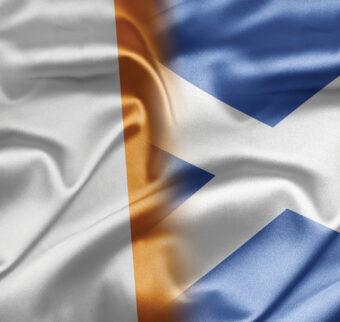Is Ireland the new Scotland?
Luke Moore, of Dental Elite, looks at Ireland’s dental practice sales market
To understand the current excitement about the Irish dental practice sales market, it’s helpful to look at parallels with the Scottish market in recent years. Pre- and post-Covid, corporate buyers were keen to buy large quantities of EBITDA (Earnings Before Interest, Tax, Depreciation and Amortisation) in Scotland due to the more rewarding terms available than they had been able to achieve in the M4 corridor.
After a few years of successful activity in Scotland, there has been a trickle effect, and the drivers that inspired growth in the Scottish market have begun to move over to Ireland.
The kinds of sales currently taking place in Ireland are closely mirroring trends in Scotland.
The EBITDA metric
EBIDTA is the means by which the true value of a dental practice can be determined. It incorporates a calculation of considerations like annual turnover, NHS contract value, UDA value, average associate fees and other costs. This form of valuation reflects the true operating performance and profitability.
All non-cash costs are removed from the accounts for this calculation, including any capital investments and expenses. EBITDA also removes any costs irrelevant to a new buyer – such as a spouse’s salary. The EBITDA value is then multiplied by a factor determined by the market at the time to provide a valuation. In Scotland – as is now the case in Ireland – buyers have been able to purchase large chunks of EBITDA multiplied by a lower factor than in more established markets south of the border.
For example, recently in Scotland – and now in Ireland – this could represent an opportunity for a corporate group to pick up £300k of EBITDA, at a multiple of five or six times, as opposed to the same EBITDA in London for seven to eight times. For them the arbitrage potential – the investment cost versus the immediate increase in the value conferred by their purchase1 – is a lot higher.
Irish markets transformed
In the past, dental practice sales in Ireland were often completed with no support in negotiations from specialist agents. Many sales were to associates, and instead of formalised arrangements, agreements may have been relatively perfunctory, to the detriment of both parties. A lot of practices were being valued on a very low percentage of turnover. These outmoded metrics meant sales were less profitable to the vendor, and businesses were less attractive to buyers.
It has been possible to apply a lot of comparable data assimilated from Scotland to the Irish market. The transference of effective models, and the ensuing interest from buyers has been great news for Ireland. Vendors are now getting far more money for their practices than in previous years, because their true value is calculated using more accurate and reliable data.
Southern Ireland is a fully private market, which has meant an easy transition for corporates moving towards private, or the many corporates already fully dealing in private practices. The ebullience of the southern Irish market has also had a knock-on effect for Northern Ireland, and the benefits of this are still emerging.
What are the likely developments for the Irish market?
Scotland is a good predictor of the changes that are likely to take place within the burgeoning Irish market. Following a rapid growth and expansion period, corporate interest in Scotland began to even out, and in recent times has even seen some contraction, with ‘consolidation and portfolio management’ set by some larger corporate buyers. Some strategic mergers have taken place, and there was a flurry of activity among new, independent, individual and consolidator buyers. Younger buyers have become more active, and there has been a surge of micro-consolidators entering the market – in England as well as Scotland. There are emerging signs that this is now happening in the Emerald Isle.
Micro-consolidators may have formed a group based on 2-5 practices, and now have a bank of cash, having paid off the large majority of their debt. By entering the Scottish market, they are now either finding the freedom they need to expand their practices, or building up the potential for a lucrative trade-sale further down the line.
For vendors, selling to micro-consolidators can be an appealing opportunity, as they are more often able to offer 80%, 90%, or even 100% up front, whereas many corporate sales will be based on higher deferred consideration.
Corporates currently exercising a lot of influence and buying power in the markets may well have started out as micro-consolidators, so this activity represents fresh opportunities for new stars to expand, and develop into corporates themselves.
Win-win
Dental Elite has fourteen years of experience, successfully managing the complexities of dental practice sales all over the UK. We’ve been closely involved in the growth of a flourishing market in Scotland, which has continued to thrive and develop with our specialist help. We’re pleased to be able to contribute to positive growth for practice owners and buyers with our agents in Ireland as well.
So, is Ireland the New Scotland? For the time being – yes, very much so. Now is truly an exciting time for buying and selling dental practices in Ireland. With the help of knowledgeable agents who are able to negotiate great terms, based on the true value of a dental practice, it really can be a win-win for everyone.
More information

Visit dentalelite.co.uk, email info@dentalelite.co.uk or call 01788 545 900 Luke Moore is one of the Founders and Directors of Dental Elite and has overseen well more than 750 practice sales and valuations. With more than 19 years working in the dental industry, Luke has extensive knowledge in both dental practice transfers and recruitment and understands the complexities of NHS and Private practices.
Footnotes
- Francis, K. Equity arbitrage: The literal million-dollar difference in the sale of your dental practice. Dental Economics. September 2022. Accessed April 2024


You must be logged in to post a comment.